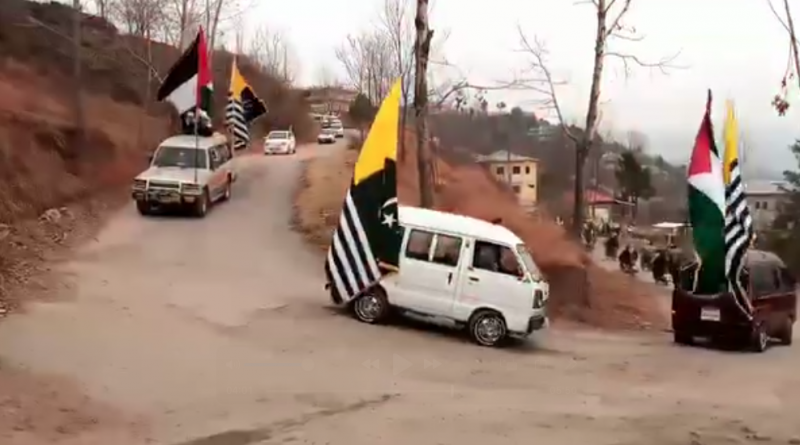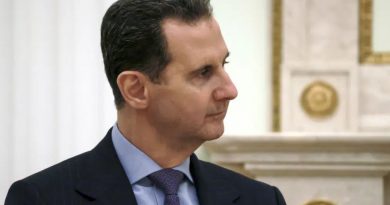Hamas-LeT Pact Preceded Pahalgam Terror Attack, Reveals Intelligence Dossier
New Delhi — In a chilling revelation that signals a tectonic shift in South Asia’s terror landscape, Indian intelligence officials have linked the recent Pahalgam terror attack to a deepening alliance between Palestinian militant group Hamas and Pakistan-backed jihadist outfits, including Lashkar-e-Taiba (LeT) and Jaish-e-Mohammed (JeM).
The classified assessment, first reported by The New Indian in an exclusive by Emaad Makhdoomi, reveals that this nexus was formalized during a high-level rally held in Pakistan-occupied Kashmir (PoK) on February 5, 2025.
The rally, provocatively titled the “Kashmir Solidarity and Hamas Operation Al-Aqsa Flood Conference”, took place at Shaheed Sabir Stadium in PoK. Sources confirm that operatives involved in planning the Pahalgam attack were present at the event.
In a declaration that shocked security circles, a Jaish operative reportedly thundered from the stage: “The fighters of Palestine and Kashmir now march as one. Blood will be spilled in Delhi, and Kashmir shall be torn from India.”
Among those in attendance were top-ranking commanders: Talha Saif, brother of JeM chief Masood Azhar; senior field commanders Asghar Khan Kashmiri and Masood Ilyas; and key Lashkar-e-Taiba figures.
Most notably, Hamas made its first known formal appearance in PoK, represented by Dr. Khalid Al-Qadoumi, its Iran-based envoy. Several Palestinian figures were also seen aligning ideologically and logistically with Pakistani terror outfits.
According to intelligence analysts, this summit marked more than just rhetoric—it established a collaborative framework for future joint operations, modeled on Hamas’s asymmetric warfare tactics in Gaza.
“Pakistan-backed terrorist outfits are now consciously emulating Hamas’s blueprint,” a senior Indian intelligence official told The New Indian. “These groups are manipulating religious ideologies to provoke violence and foster deep-seated communal discord within Jammu and Kashmir.”
A Multimedia Propaganda Surge
Days ahead of the February summit, a provocative eight-minute propaganda video was circulated by the Pakistan Markazi Muslim League, glorifying Islamist separatists such as Syed Ali Shah Geelani, Yasin Malik, and Masrat Alam Bhat. The video lauded slain terrorists including Burhan Wani and Manan Wani, showing funeral footage while drawing incendiary parallels between Gaza and Kashmir.
“Pak ki Azadi, Kashmir ki Azadi” blared throughout the production, openly inciting Kashmiri youth to rebel against Indian sovereignty.
Security experts warn that this blend of emotional imagery and militant messaging represents a dangerous evolution in hybrid propaganda, designed to radicalize young minds and fuel communal tensions.
“The aim is to internationalize the Kashmir issue by tying it to the globally resonant Palestine-Israel conflict,” said a counterterrorism analyst. “It’s a strategic pivot designed to rally global sympathy while accelerating internal destabilization.”
Pahalgam Attack: Pre-Meditated and Communally Driven
On March 24, the idyllic town of Pahalgam—a hub for tourists and Hindu pilgrims—was shattered by a brutal terrorist ambush. Sources have confirmed the attack was orchestrated from across the Line of Control (LoC) by banned outfits including Jamaat-ud-Dawa (JuD), Lashkar-e-Taiba, and Jammu and Kashmir United Mujahideen (JKUM). The strike bore the hallmarks of meticulous premeditation, with execution carried out by highly trained Pakistani terrorists.
Three key individuals have been identified as the architects of the attack:
- Saifullah Kasuri (aka Saifullah Khalid), a senior LeT commander with close ties to LeT founder Hafiz Saeed. Designated by the U.S. Treasury Department, Kasuri has served as LeT’s Peshawar operations head and was instrumental in mobilizing the political front Milli Muslim League (MML), widely seen as a civilian mask for LeT’s agenda.
- Abu Musa (aka Musa Kashmiri), formerly affiliated with ISIS, is known for plotting attacks against foreign nationals in India. He was found with jihadist literature and reportedly attempted lone-wolf attacks before realigning with LeT to target non-locals and Indian security personnel.
- Rizwan Hanif, a senior JKUM operative based in Rawalakot, PoK. Intelligence sources say Hanif oversaw the logistics of the Pahalgam strike, including infiltration routes and arms procurement.
Perhaps most disturbing was the revelation that the attackers reportedly interrogated victims about their religion before executing them—pointing to a targeted communal intent. “This wasn’t just a terror attack—it was a message,” said a senior Indian intelligence official. “It signals a dangerous shift from generalized violence to targeted, faith-based executions.”
ISI and Military Involvement
The role of Pakistan’s Inter-Services Intelligence (ISI) and its military in coordinating this growing alliance is under sharp scrutiny. According to multiple sources, the ISI is driving efforts to reposition Kashmir on the global stage by deliberately echoing the Palestine narrative, hoping to energize pan-Islamist sentiments and draw international scrutiny toward India’s internal affairs.
“The ISI is effectively weaponizing the Palestinian cause to export jihad to South Asia,” said a former Indian military officer. “Their goal is twofold: to globalize the Kashmir issue and to create a new generation of radicalized youth who see themselves not just as Kashmiris, but as soldiers in a broader global jihad.”
A Cross-Continental Threat Matrix
This emerging Hamas-LeT nexus signals a dangerous cross-continental collaboration that may reshape the operational dynamics of Islamist terrorism in the region. Indian officials believe this could mark the beginning of a new era of hybrid warfare—fusing militant Islamist ideology with advanced propaganda and asymmetric guerrilla tactics.
As India grapples with the fallout of the Pahalgam massacre, and as global attention continues to focus on the Middle East, security experts are calling for a recalibration of counterterrorism strategies. “We’re witnessing the globalization of local conflicts,” said an Indian intelligence official. “And that’s a warning the world can’t afford to ignore.”



